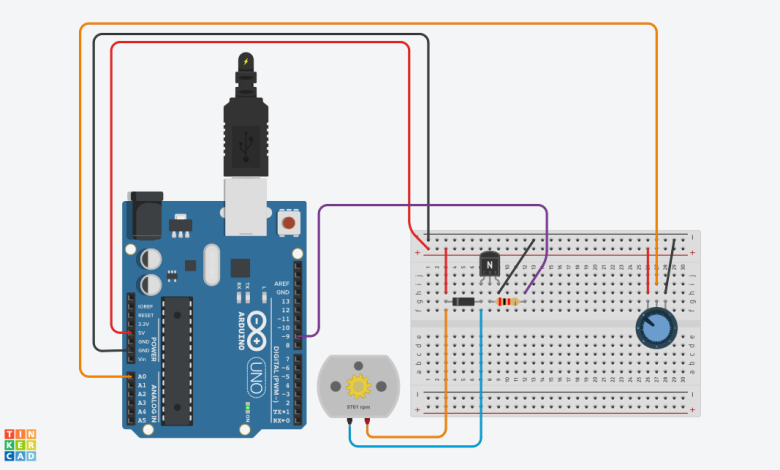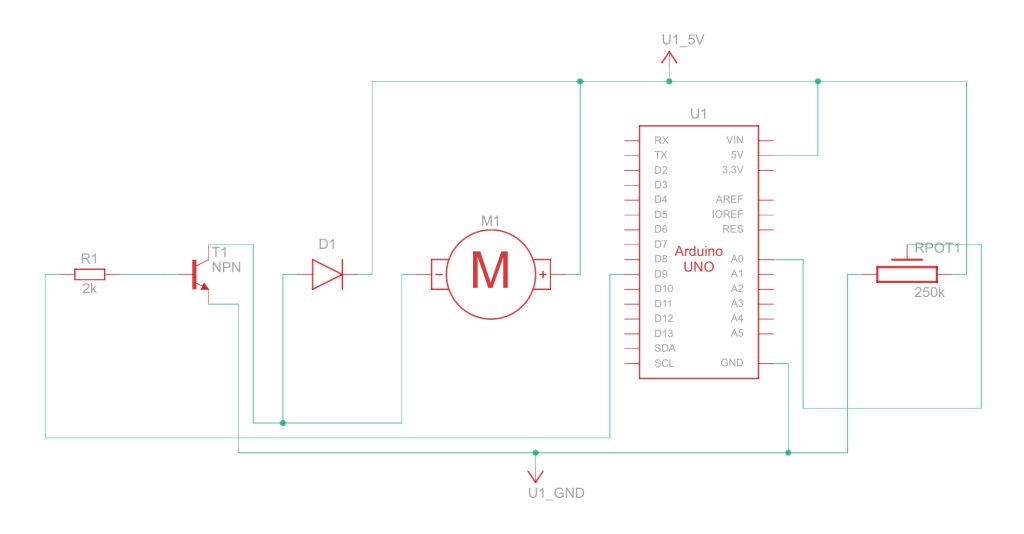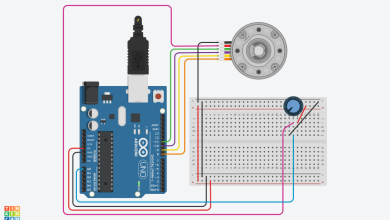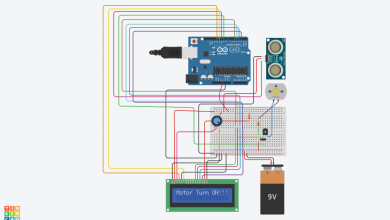Arduino-Based DC Motor Speed Controller


The Arduino-Based DC Motor Speed Controller project presents a versatile and accessible solution for regulating the speed of a DC motor using an Arduino Uno R3, a 2kΩ resistor, an NPN transistor (BJT), a diode, and a 250kΩ potentiometer.
This project is designed to offer a hands-on experience in motor control and analog sensing. The 2kΩ resistor and NPN transistor act as a switch, allowing the Arduino to modulate the motor’s power.
The 250kΩ potentiometer serves as a user interface, enabling dynamic control of the motor speed.
In the provided code, the Arduino reads the analog input from the potentiometer, mapping it to an appropriate motor speed range (0-255).
The NPN transistor, connected to digital pin 9, modulates the motor’s power based on the potentiometer input, providing a seamless and adjustable speed control mechanism.
Component List:
| Name | Quantity | Component |
|---|---|---|
| U1 | 1 | Arduino Uno R3 |
| M1 | 1 | DC Motor |
| R1 | 1 | 2 kΩ Resistor |
| T1 | 1 | NPN Transistor (BJT) |
| D1 | 1 | Diode |
| Rpot1 | 1 | 250 kΩ Potentiometer |
The circuit involves connecting a DC motor to digital pin 9 via an NPN transistor controlled by an Arduino Uno. A 250kΩ potentiometer is connected to analog pin A0, and its input is mapped by the Arduino to determine the motor speed.
A diode placed across the motor terminals ensures a smooth current flow, enhancing the reliability of the system. This straightforward setup allows users to grasp the principles of analog input processing and transistor-based motor control.
Arduino code:
int motorPin = 9;
int potPin = A0;
int potValue = 0;
void setup() {
pinMode(motorPin, OUTPUT);
}
void loop() {
potValue = analogRead(potPin);
int motorSpeed = map(potValue, 0, 1023, 0, 255);
analogWrite(motorPin, motorSpeed);
}This project facilitates a fundamental understanding of analog input processing, PWM (Pulse Width Modulation) for motor control, and basic electronic components.
Users can experiment with different resistor and potentiometer values for varied motor speed ranges. The simplicity and effectiveness of this project make it an excellent starting point for beginners exploring the realms of Arduino-based motor control.


